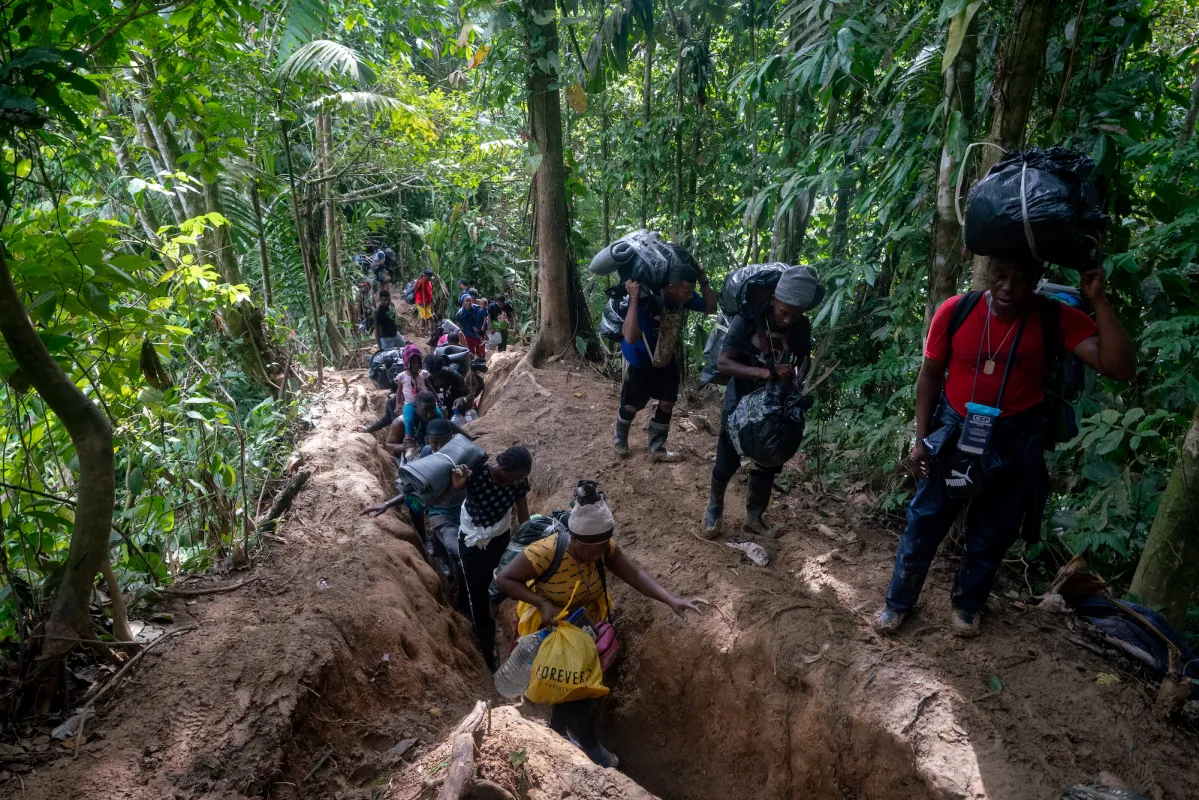Panama recently reported alarming news: members of Hezbollah, the notorious paramilitary group rooted in the Middle East, have been identified crossing the dense and treacherous Darién jungle. This area, notorious for migrant smuggling, has become a hotspot for various criminal activities. The discovery of Hezbollah operatives in the region has raised significant security concerns for neighboring countries, including Costa Rica.
Costa Rica on High Alert
Costa Rica’s Minister of Security, Mario Zamora, has been quick to acknowledge the heightened risks posed by the increasing migration flows through the region. Although no confirmed cases involving Hezbollah members have occurred in Costa Rica, Zamora emphasized that the surge in migration has raised alerts for individuals connected to terrorism and other international crimes.
“We haven’t seen Hezbollah operatives in Costa Rica yet, but that doesn’t mean the threat isn’t real,” Zamora stated. The minister made it clear that Costa Rican authorities are vigilantly monitoring migration patterns and working closely with regional allies to track individuals with suspected ties to terrorism.
Costa Rica’s Recent Encounters with Terrorism
While no Hezbollah operatives have been apprehended in Costa Rica, the country has had its fair share of brushes with terrorism. Three individuals with international terrorism alerts have been detained. According to Zamora, “We’ve arrested two Somalis linked to a little-known terror group, and an Egyptian associated with Al Qaeda.” Additionally, Costa Rican authorities currently have a Kazakh national in custody, who is believed to have ties to ISIS.
These arrests underscore the real dangers posed by unchecked migration and the potential for terrorist infiltration. Zamora emphasized the importance of stringent border controls and robust intelligence-sharing agreements with Panama and other regional partners.
Biometric Systems and Regional Cooperation
To enhance the country’s defense against terrorist threats, Costa Rica has implemented an advanced biometric identification system. Funded by a U.S. government grant, this system will allow authorities to identify individuals with a history of terrorist activities more accurately. The system is still in the process of being fully integrated, but its capabilities are already proving invaluable.
Zamora highlighted the critical cooperation between Panama and Costa Rica, noting that both countries share a sophisticated database to track terrorist groups. “Had Panama not detected these individuals, we would have caught them here,” he added, emphasizing the importance of regional collaboration in the fight against terrorism.
Migrant Smuggling and Terrorist Infiltration
The Darién jungle has long been a perilous route for migrants, and with it comes the added danger of criminal exploitation. Terrorist groups like Hezbollah are reportedly exploiting the same routes used by human smugglers to infiltrate Central American countries, making it more challenging for law enforcement agencies to detect them.
Hans Sequeira, an official with Costa Rica’s National Intelligence and Security Directorate (DIS), explained that over the last several years, there has been a clear increase in attempts by individuals associated with terrorist organizations to enter Costa Rica illegally. These individuals typically enter through the southern border, blending in with the overwhelming number of migrants traveling north toward the United States.
“The sheer volume of migrants passing through makes it easier for people with dubious intentions to enter undetected,” Sequeira warned. This is precisely why Costa Rican authorities have doubled down on their efforts to screen and track migrants.
International Cooperation: Key to Costa Rica’s Security
Regional cooperation has been a cornerstone of Costa Rica’s strategy to prevent terrorism. According to DIS officials, working closely with intelligence agencies from neighboring countries such as Panama has been essential to identifying and detaining individuals with suspected ties to terrorist organizations.
The challenge remains, however, in ensuring that these individuals do not slip through the cracks. Once detected, the goal is to swiftly deport them back to their countries of origin, preventing them from establishing a foothold in Costa Rica or elsewhere in the region.
Vigilance Moving Forward
While Costa Rica has yet to face a direct threat from Hezbollah, the developments in Panama serve as a stark reminder that no country is immune to the global menace of terrorism. With the region’s porous borders and high volumes of migrants, Costa Rica must remain vigilant. The implementation of advanced biometric systems and enhanced cooperation with regional allies will be crucial in safeguarding the country’s national security.
In the coming months, as migration flows continue and new challenges arise, Costa Rica’s ability to respond to terrorist threats will be tested. Minister Zamora’s commitment to a secure and coordinated approach offers hope that the country can navigate these threats while maintaining its status as one of the region’s safest nations.

